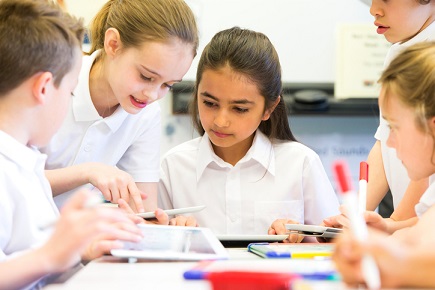
An independent school in Bathurst that provides an innovative learning environment for students outside the mainstream is about to undertake a landmark study on student wellbeing.
Skillset Senior College (SSC) – a Special Assistance Year 10-12 school, working with disengaged, at-risk young people – will research the effectiveness of strategies to improve student wellbeing in a school environment.
A recent independent survey revealed that 72% of SSC students would have withdrawn from secondary education if they hadn’t enrolled at the college.
The announcement of the study follows a highly sought-after School Based Research Project grant awarded to the College by the Association of Independent Schools NSW (AISNSW).
AISNSW Chief Executive Dr Geoff Newcombe AM said SSC is well-placed to investigate such strategies, given its high success rate at re-engaging students who have previously refused to attend school.
“Supporting the mental health and wellbeing of all young Australians has never been more important, particularly for those from disadvantaged backgrounds,” Dr Newcombe said.
“Studies have shown that people from low SES areas may be more susceptible to poor health, higher rates of smoking and experience disadvantage in areas such as education, employment and income”.
Dr Newcombe said the research project – supported and funded by AISNSW – will assess a “whole school approach” to wellbeing by measuring student mental health before and after intervention.
SSC Director and founder Craig Randazzo said most of the school’s 73 students have been unable to find success in previous educational settings and have struggled with personal and societal challenges.
“As a small and independent Special Assistance school with high staff to student ratios, we are uniquely placed to examine the best interventions that lead to increased student wellbeing and share our findings to help inform all school sectors,” Randazzo said.
Head of College, Abbey Barrett, said SSC provides a positive and inspiring learning environment for students who are often in the process of dealing with significant mental health or life challenges.
“We also pay particular attention to the wellbeing of our teachers and support staff who in our school, become trusted advisers and role models showing students the opportunity that life-changing education can deliver,” Barrett said.
Head of Research and Development, Dr Martin Hughes, said adolescents with mental health challenges are more likely to engage in negative coping strategies such as substance abuse and high risk behaviours such as violence and eating disorders.
“It’s therefore imperative that young people are given more tools and have access to positive coping strategies, especially in a school setting,” Dr Hughes said.
“The primary aim of this school-based project will be to implement, measure, and assess three strategies – exercise, resilience training and occupational therapy - with the school’s young people”.
Dr Hughes said another key aim is to build confidence and competence in staffs’ ability to conduct and run a robust scientific project, with a view to build upon these skills for future research.
The two-year research project is due to report its findings in December 2021.


